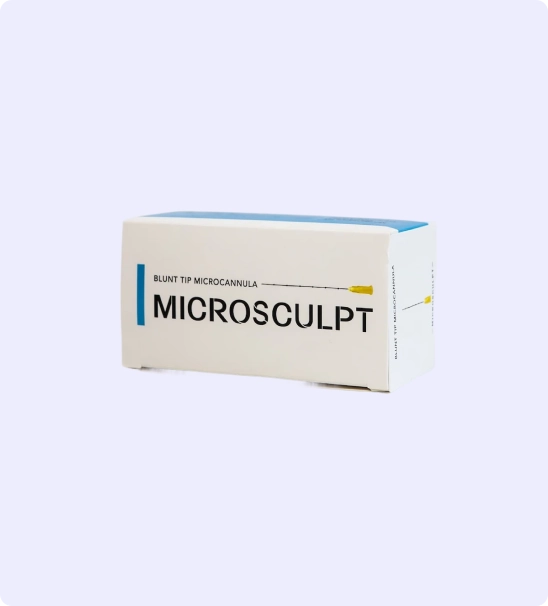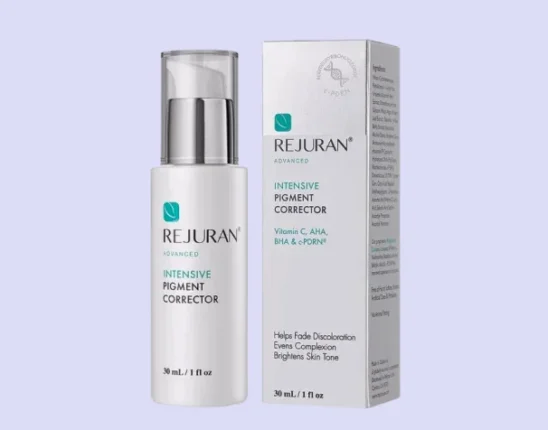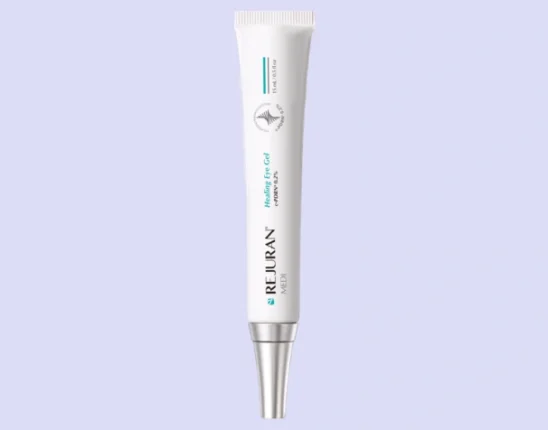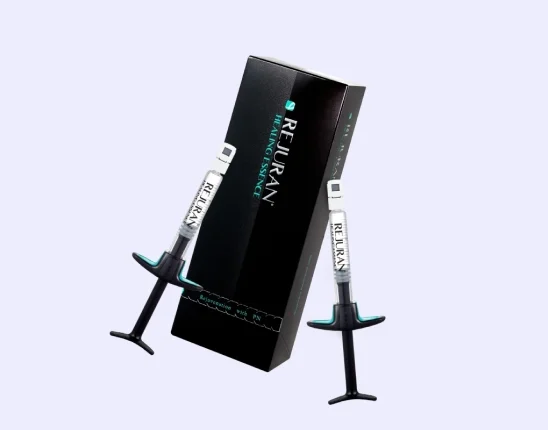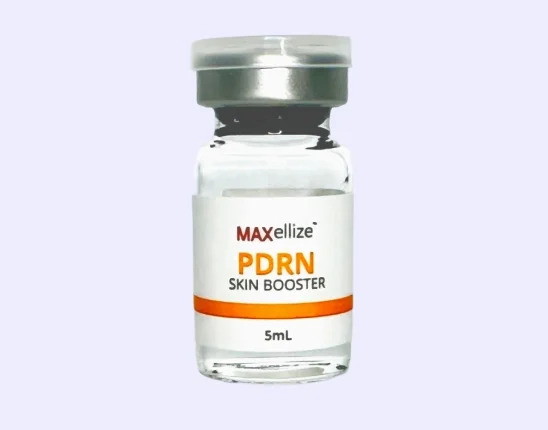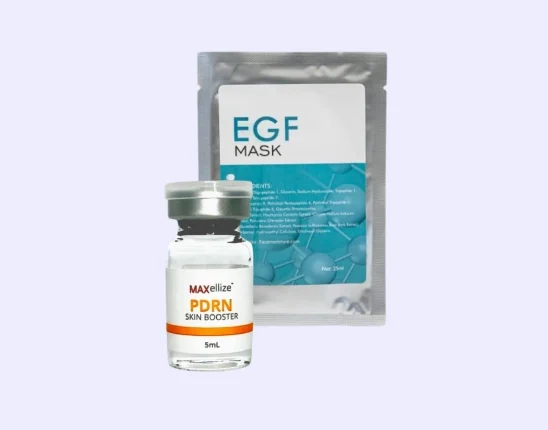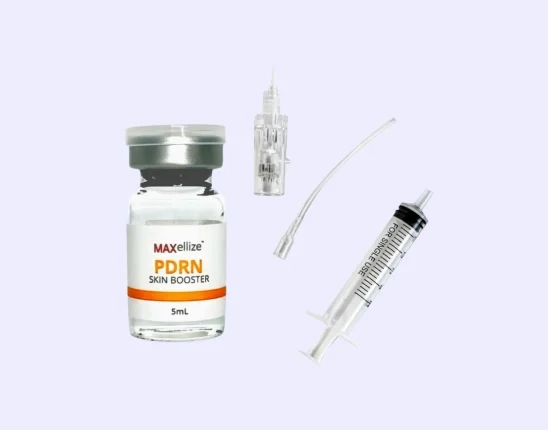There are two substances that are critical for improving the appearance of skin: vitamins and moisture. For this reason, plenty of cosmetic serums and beauty products will often contain either Vitamin C or hyaluronic acid. As the key ingredient in many skin rejuvenation therapies, these two compounds are some of the most effective skin rejuvenation therapies the market can offer.
What’s the difference between using vitamin C or hyaluronic acid products? Vitamin C serums stimulate collagen production and works as an effective antioxidant, while hyaluronic acid moisturizes the skin. They work well together and can be combined with other skin rejuvenation methods like microneedling for better results.
Differences, Similarities, And Benefits
Hyaluronic acid (or HA) and vitamin C are well known for their efficacy in managing the signs of aging. As people grow older, the production of essential compounds in the skin that give it its appearance and volume breaks down. The body slows down production of protein like collagen and the skin gets more sensitive to free radicals – oxygen-containing molecules which end up damaging skin cells.
Even without taking aging into account, the skin goes through a lot of wear and tear because of daily activities. Dry skin, sun damage, active injuries, and micro-traumas are all everyday occurrences that the skin experiences. These contribute to the appearance of wrinkles, fine lines, and other skin blemishes that get worse as people age.
Hyaluronic acid and vitamin C can help treat these signs of aging, but they do so in different ways. Here’s a table summarizing their differences and similarities.
| Vitamin C | Hyaluronic Acid |
| An antioxidant that helps protect skin against the ultraviolet (UV) rays from the sun | Acts as an effective way for skin cells to keep water and moisture, keeping it supple |
| Naturally found in the body and in most people’s diets | Naturally found and produced by the body, especially on the skin and inside connective tissue |
| Safe for most skin types, minor side effects reported with regular use | Virtually safe for all skin types – any side effects from its use is attributed to contamination |
| Promotes collagen production, prevents skin sagging, boosts cell recovers, and eliminates free radicals | Enhances skin elasticity, makes it more firm and adds volume, protects tissue from oxygen free radicals |
| Usually requires no prescription to use | Mostly over-the-counter product and requires no prescription |
| Comes in serum form, though supplements, creams, and some make-up products also use it as an ingredient | Comes in moisturizer, oral medication, injectable, and serum form; also a primary ingredient in many make-up products |
One important caveat to keep in mind when recommending these products to patients is that they cannot reverse or totally address the signs of aging. Because of the continued breakdown of the body’s functions as it gets older, the skin is one of the most visible and hardest to treat areas in appearance. Even copious amounts of vitamin C and hyaluronic acid will become ineffective in time.
What dermatologists can do is to outline the benefits of taking these products early, since they improve the likelihood of the skin becoming more resilient to the signs of aging. As a method of treatment, HA and vitamin C are effective ways to manage the signs of aging. As preventive measures, these two products are an excellent combination that can keep the skin healthy for a long time.
When To Consider Using Vitamin C
Vitamin C (and the assorted derivatives found in most skincare products) specializes in preventing and repairing active damage to the skin. Most people get adequate enough amounts of vitamin C via the food they eat, but for a cosmetic treatment, the best sources are topical creams and serums.
The primary role of vitamin C in skincare is to help the body resist the effects of sun damage, especially the ones caused by free radicals. As a powerful antioxidant, vitamin C protects skin cells from being damaged by these free molecules, reducing the amount of sun damage and making the person less prone to conditions like skin cancer.
If a patient is looking for a boost to their skin regrowth and rejuvenation routines, vitamin C is excellent because of its ability to speed up cell turnover. Any side effects are minimal and are usually limited towards redness, itching, irritation, soreness, or swelling, but these effects should dissipate in 24 hours.
One particular benefit patients will enjoy from using vitamin C is the vastly increased collagen production. This prevents the skin from becoming too thin and sagging, as it restores volume with consistent application. Combined with other methods to boost collagen production like microneedling, vitamin C is an effective beauty treatment that can be seamlessly integrated with any skin care regimen.
When To Consider Using Hyaluronic Acid
Hyaluronic acid (or hyaluronan) is a natural humectant, as it absorbs up to 1,000 times its weight in water. It’s primarily used as a cushion for bones, joints, cartilages, and other soft material in the body. However, the largest deposits of HA are found in the skin, as it’s essential for preventing it from drying out.
HA’s primary role in skincare is a moisturizer. Without sufficient hydration, skin is more likely to break down and develop conditions like acne or scarring. Hyaluronic acid helps manage these conditions by keeping the skin well-hydrated, allowing it to withstand the daily strains placed on it and recover during the night.
If a patient is looking to improve their skin’s appearance, make it more supple, and add more volume, hyaluronic acid is one of the best products to use. Unlike most beauty products, its biocompatibility with the human body makes it ideal for application on anyone, regardless of skin type or age.
Most formulas that contain HA usually include other compounds that can help moisturize the skin. As a supplementary ingredient, hyaluronic acid helps the active ingredients settle in the skin once applied. It can also help address the usual drawbacks with using some cosmetic products like retinol and other exfoliating acids.
Hyaluronic acid also works as an effective antioxidant, targeting oxygen-rich free radicals and protecting skin cells from further damage. It’s an excellent way to manage heat and sun damage to the skin, as it can help reintroduce lost water content as a topical application.
How These Two Complement Each Other
The primary reason most experts and dermatologists recommend mixing vitamin C and hyaluronic acid is that their methods of action work well with one another. While they may both manage the signs of skin aging, they’re effective when combined because they don’t overwork the skin.
One drawback to using products like vitamin C or retinoids is that they can be harsh on the skin if applied with a high concentration. Vitamin C causes acne breakouts if applied to certain skin types, and can trigger chronic dry skin if used improperly. HA acid creates a moisture barrier that gives the skin ample room and time to recover from the changes of vitamin C.
Hyaluronic acid also complements the antioxidants found in vitamin C, allowing it to boost its protective qualities against UV rays. Ultraviolet radiation is thought to be one of the primary causes of free radicals, since prolonged sun exposure breaks down skin cells and makes them more likely to develop conditions like sunburn.
Most studies also support the effectiveness of vitamin C with the effects of hyaluronic acid. Combined, both ingredients can help reduce wrinkles, improve the appearance of acne scars, and overall rejuvenate skin elasticity and firmness.
Something to keep in mind when recommending these products is that while they can boost each other’s efficacy, this still doesn’t account for differences in skin type between patient to patient. It’s best for dermatologists to conduct a full diagnosis of their patients before recommending the use of vitamin C or hyaluronic acid serums, to avoid any unpleasant side effects.
Another Alternative: PEP Factor Serum
Patients and dermatologists looking for an alternative or complementary skincare product to vitamin C and HA can consider using PEP factor. This proprietary mixture of peptides and proteins is a fast-rising and innovative product that shows promising signs of helping improve skin.
In particular, PEP factor serums may boost the collagen production of the skin, which can help it regrow under dead skin cells and lost hair. Combined with the cell-boosting properties of hyaluronic acid and vitamin C, PEP factor products have the potential to catalyze the already promising changes into something way better.
Dermatologists should be careful to only recommend medical-grade PEP factor serums to their patients, in the interests of quality and getting better results. With consistent use and combined with other skincare routines, PEP factor may help patients gain the skin or hair they’ve always wanted.
Buy High-Quality Medical Tools And Supplies From FACE Medical Supply
Vitamin C and hyaluronic acid are extremely useful skin rejuvenation treatments, and have an excellent interaction that can give better overall results when used in skincare. For best results, these should only be taken after consulting with a dermatologist, with treatments halting immediately if any complications or side effects occur.
FACE Medical Supply specializes with providing high-quality medical tools and supplies at affordable prices. All of our products are medical-grade and integrate seamlessly with most cosmetic practices and their services. We pride ourselves on offering a reliable source of medication and tools for dermatologists and their clinics, paired with top-notch customer service.
For more information about what we can provide, schedule a consultation with us today.
Learn more: Using Microcannulas For Liposuction On The Cheeks
